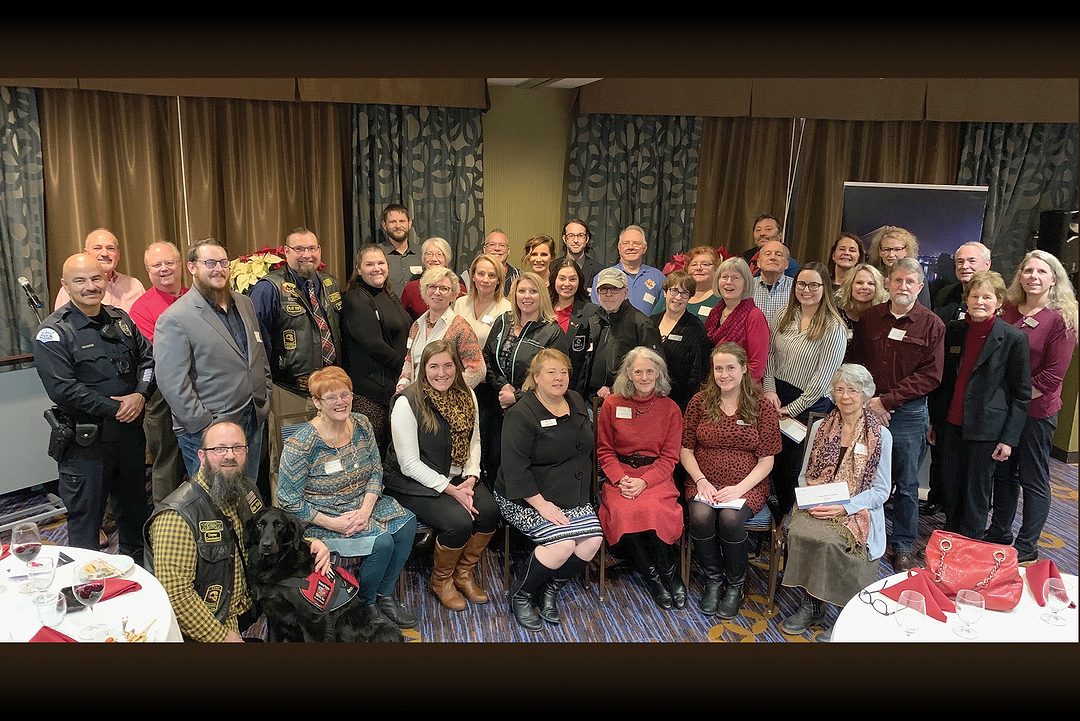
Home » Three Rivers Community Foundation marshals best of the Tri-Cities
Three Rivers Community Foundation marshals best of the Tri-Cities

August 14, 2020
When Kennewick’s Trios Health was sold to a for-profit company in 2018, the managers of the Trios Foundation were left in a pickle.
The nonprofit had $2.2 million in assets, lots of worthy targets for donations, and no home.
Led by Pete Toolson, the board considered its options. Several worthy charities wanted the cash, but not the strings that came with it.
In the end, it chose the Three Rivers Community Foundation as the new home. Trios Foundation became the Family Health and Wellness Foundation and its money was deposited into the Three Rivers’ investment fund. Its mission to support eight specific charities with the interest it earns stayed intact.
“We felt 3RCF was a good home for the money,” Toolson said. The hospital foundation disbanded after the money was transferred.
Three Rivers Community Foundation, or 3RCF, is the foundation’s foundation.
It was created in 1999 by civic-minded Tri-Citians who united to create a unique organization to manage a pool of donations to support the Mid-Columbia’s nonprofits in perpetuity and to help would-be philanthropists carry out their wishes.
It’s also stepped up to help during the pandemic by launching an emergency response fund to support nonprofits affected by the coronavirus shutdowns.
Today, it boasts $6.1 million in assets and helps Tri-Citians — and Tri-City businesses — manage charitable funds, scholarships and pool their resources to support churches, health initiatives, food banks, arts organizations, animal charities and many other nonprofits.
While United Way of Benton and Franklin Counties leverages workplace donations to support nonprofits, 3RCF runs on individual donations, bequests and donor-directed funds such as the former Trios foundation.
3RCF is one of 24 community foundations in Washington and 750 nationwide, according to the national Council on Foundations. They range from less than $100,000 in assets to more than $1.7 billion and collectively channeled $5.5 billion to nonprofits in 2017.
Its Washington peers include the massive Seattle Foundation, with more than $1.1 billion in assets and a mission to serve the state, and the Blue Mountain Community Foundation, with $34 million and a mission to serve southeastern Washington.
By design, community foundations serve specific geographic areas. For 3RCF, that is Benton and Franklin counties. It may be smaller than its neighbors, but it speaks to the maturity of the Tri-Cities and a collective desire to provide long-term financial support to nonprofits of all stripes.
“A community foundation signifies the strength of a community,” said Abbey Cameron, who signed on as executive director in December.
Recent grant recipients
Recent beneficiaries of 3RCF-managed largesse include the Boys & Girls Clubs of Benton and Franklin Counties, which received a grant of nearly $30,000 to support the percussion band; Domestic Violence Services of Kennewick, which received $5,000 for hotel vouchers; and KC Help, a Pasco nonprofit that received $6,000 to buy batteries for the free motorized wheelchairs it gives to residents who don’t have coverage to pay for them and $40,000 to carry it through the Covid-19 pandemic. (Read more about KC Help on page A25)
In 2019, 3RCF distributed more than $520,000 to 43 entities — 33 as board-directed grants, nine to organizations specified by donors and one memorial fund. It also passed out $24,000 in scholarships for Babcock Services Inc. and the Lyle Holt Scholarship Fund.
Foundation leadership
It also hired Cameron to succeed Carrie Green as executive director.
Cameron, who previously led the Walter Clore Wine & Culinary Center in Prosser, joined Rozanne Tucker, the foundation’s longtime associated director.
Together with the board, Cameron and Tucker carry out its big goal to bring professional, thoughtful leadership to the growing world of Tri-City gift-giving.
3RCF exists to support area nonprofits. But it also supports residents and businesses by providing a way to contribute now and in the future.
The foundation brings expertise, expert eyes and professional money management to what can be a confusing world. All funds are managed by Community First Bank’s HGF Trust.
Supporters can donate to the general endowment and let the 3RCF board select grant recipients each year. That gives the foundation flexibility to respond to changing needs over time.
Donors also can create donor-advised funds to steer money to specific charities or activities, with instructions that may outlive them.
Donors often arrive with a passion for a particular cause, Cameron said.
For Cameron, whose marching orders include raising awareness about community foundations, it starts with a simple message: Philanthropy is for everyone.
Would-be philanthropists don’t need fat wallets, only generous hearts. All are welcome in the foundation family.
“People hear ‘philanthropy’ and think millions,” she said. “They don’t have to think Rockefeller to start a fund.”
Small donations are welcome in the pooled fund. A donor-advised fund can begin with as little as $25,000 to $50,000.
Covid-19 emergency fund
3RCF ventured into new territory in April when it set up a Covid-19 Emergency Response Fund to aid nonprofits affected by the coronavirus pandemic that sidelined much of the economy and left many without jobs.
The fund has raised $150,000 to date, including a $50,000 lead donation from an unnamed fund holder and $20,000 from the Group Health Foundation.
Group Health Foundation, with $1.9 billion in assets, announced in 2019 it is setting up an office in Pasco to carry out its mission to promote health equity across the state. Cameron called it a great example of foundations partnering on shared goals.
3RCF has distributed $75,000 from its Covid fund to local nonprofits such as Senior Life Resources, which runs Meals on Wheels, Opportunity Kitchen, the Salvation Army, Columbia Industries, ARC of the Tri-Cities and others.
It broke with tradition and is giving serial grants to organizations with recurring expenses for food and personal protection equipment, or PPE.
While the Covid Emergency Fund has been a success, nonprofits face an uncertain future because of the pandemic.
The Monitor Institute by Deloitte projects a 10% to 40% contraction in the sector, with nonprofits that rely on earned income, government contracts and fees for services as well as arts and culture organizations to be among the hardest hit.
“Funders and nonprofits may not be able to control the future, but it’s critical that we all keep working to do what we can to influence its trajectory,” it said in a July report.
Cameron said the heart and soul of 3RCF are the grants it passes out each year, funds from the proceeds from the endowment.
It received 36 applications totaling $135,000. Last December, it passed out 28 grants totaling $83,000. Cameron called the ceremony touching.
Building bridges between nonprofits is a welcome side benefit to passing out checks.
Scholarship management
3RCF also has a small but growing scholarship management program. It manages five programs on behalf of sponsors such as Babcock Services, a Kennewick firm that provides professional services to the nuclear industry.
Phil Gallagher, senior vice president, said Babcock turned to 3RCF in 2007 to run its then-new scholarship for employees’ children. The company felt starting its own foundation was unnecessarily difficult.
He contacted Blue Mountain Community Foundation, but since Babcock isn’t in Walla Walla County, he turned to 3RCF.
“They were very helpful and worked with us to develop a strategy and implementation plan to get our scholarship program in place,” Gallagher said.
Since 2008, it has awarded more than 100 scholarships totaling more than $400,000. Its scholarships have made college degrees a reality for many of the recipients.
“I am a huge fan of the 3RCF and the work they do, and believe them to be both a reputable organization and a worthy landing spot for donations,” he said.
Three Rivers Community Foundation: 509-735-5559; 3rcf.org; office@3rcf.org; Facebook.
Local News Charitable Giving & Nonprofits Nonprofits
KEYWORDS august 2020




